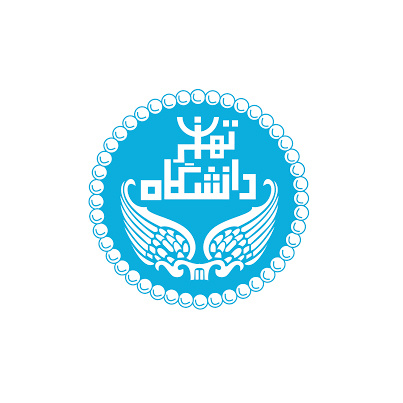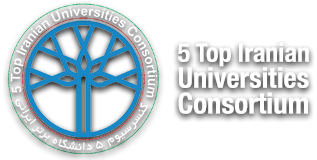University of Tehran

As the University of Tehran (UT) is the symbol of higher education of Iran, the main gate of the University in central Tehran, with its specific design and architecture is in a more general sense, a logo of education in Iran.
History
Rooted in Jondi Shapur University which goes back over 2,000 years, the University of Tehran in its traditional form was established seven centuries ago. It was founded firstly in religious seminaries (“Houza” or traditional religious schools). Other than religious studies, the education then covered mathematics, astronomy, medicine, literature, biology, physics and chemistry. During the modern era, the University of Tehran evolved from a religious structure to a more modern and academic structure of higher education. Dar-ol-Fonoon College was the first engineering school in its modern form which was established almost a century ago.
This was 20 years before the establishment of similar colleges in Tokyo (Japan). Amir Kabir, the Prime Minster of Iran during the Qajar dynasty (1848-1851), having witnessed the modern sciences during his journey to Russia and the Ottoman Empire, established Dar-ol-Fonoon College. Engineering, medical and industrial sciences were among the programs taught at the College. The first instructors of the College were seven professors from Austria. Dar-ol-Fonoon was turned into an official state-run university, the first dean of which was the foreign minister of the time, Mirza Mohammad Ali Khan.
The initial plan of turning the College into a national university was ordered by Abdol-Hossein Teimoortash, Minister of the Court of the time to Doctor Isa Sedigh. The plan was ratified by the king, Reza shah. The plan would establish faculties of Theology (Ma’ghool-o-Manghool), Natural, Economics and Engineering Sciences. The Minister of Science at the time, also in charge of implementation of the plan was Ali Asghar Hekmat, whose collections of books are kept at the University’s main library. Other teacher training colleges and Industrial schools became subdivisions of the University to which ad hoc schools and institutions would be added. It was not until 1933 that the plan was passed by the National Parliament. Due to the absence of large buildings, the mansion of the Teachers Training College for example was adopted for the Faculty of Humanities and Literature.
The University of Tehran was inaugurated in the winter of 1934. Ali Asghar Hekmat, the Minister of Science, became the first Dean of the University. The University Council was constituted of several prominent faculty members including Loghman-o-doleh and Dr. Amir A’lam from Medicine; Dehkhoda and Sedig Hazrat (Mohammad Mazaher) from Law; Sedigh A’lam and Mirza Gholam-Hossein Khan Rahnama and Dr. Siasi from Literature and Humanities; Haj. Seyed Nasrollah Naghavi and Badi-o-zaman from Ma’ghool –o- Manghool; and Dr Hesabi and Amin from the Faculty of Engineering. Also, Dr. Vali-o-llah Khan Nasr was added by the Science Ministry due to his contributions to the University.
Present Status
The academic staff of the University consists of 1,650 full-time faculty members and several hundred part-time and adjunct professors and affiliated members. The University of Tehran has a broad range of international adjunct faculty members. The University also employs 3,000 personnel who work at the different offices, institutes and centers.
The University has 19,000 undergraduate and 13,000 graduate students. The University has 6 colleges with a total of 39 faculties and 120 departments at its 7 campuses located in the cities of Tehran, Qom and Karaj as well as its Kish International Campus (in Kish Island). The University of Tehran, as the main research University of the Country, offers more than 300 post graduate programs.
Fifteen percent of the country’s Centers of Excellence, as recognized by the government, are located at the University of Tehran, which along with more than 40 research centers ensure UT’s commitment to research. Together, over 3,500 laboratories are active in these centers and in the faculties. In addition, the University of Tehran publishes more than 50 scientific journals, some of which have the ISI index.
Orientations
University of Tehran is structured to meet the following goals and objectives:
To respond to the society’s needs: Researches are implemented based on the requests of private sector and government authorities, as well as industries. In the same direction Government-University-Industry linkage (GUI), has become a policy of the University of Tehran to bring about a strong linkage.
The Office of Research and Technology of the University which deals with research is the intermediary of UT with industry and government to launch any research project. Professors and graduate students are the integral part of such activities at UT.
Training professors for other universities of the country has been the second priority.
Internationalization of the University is currently another major drive. It is sought through the improvement of standards of the research and education at the high international levels, moving to the edge of knowledge, increasing the international cooperation and presence, increasing exchange programs and increasing the number of foreign students.
Currently, the University of Tehran enjoys over 300 agreements with major international universities and institutions from more than 100 countries. UT has the Membership of various international and global educational and academic associations such as: International Association of Universities (IAU), Federation of Universities of Islamic World (FUIW), and Executive Board member of Association of Universities of Asia and Pacific (AUAP), International Association of Science Parks (IASP), International Union for the History and Philosophy of Science (IUHPS), International Seismological Center (ISC), Committee of Space Research (COSPAR), International Association of Geography (IGU), International Organization for Biological and Integrated Control (IOBIC), International Astronomic Union (IAU), Global Entrepreneurship Monitor (GEM), World Tourism Organization (WTO), International Union of Geodesy and geophysics (IUGG), International Federation of Libraries Association (IFLA) and International Council for Open and Distance Education (ICODE).
To become a top knowledge-based University: This task has been through moving on the edge of knowledge, processing knowledge to technology through the Science and Technology Parks and many incubators is another task at UT. The incubators aim to support minor and weak corporations by providing them with a range of financial, consultancy and training services. At present, the UTSTP incubator consists of 21 major units. University of Tehran enjoys the best rank among the Iranian universities, based on the well known international ranking institutes. According to Times Higher Education System (THES) in the Year 2009, University of Tehran was ranked 368 among the best universities in the world. The University of Tehran ranked 112th in Engineering & IT, 183 rd in Natural Sciences, and 298th in Life Sciences & Biomedicine in the world.
Libraries and Publication Center
The Central Library and Documentation Center of the University of Tehran has been a member of the International Federation of Library Associations and institutions (IFLA) since 1967. The Central Library is the largest academic library in Iran. The library compliments the 35 specialized libraries based at different faculties, all with the aim of advancing the research goals of the University. Currently the Central Library and Documentation Center is offering its services to more than 65 thousand members. It hosts more than 5,000 users daily. The library offers its resources under 13 main collections (most of which have been donated by distinguished professors of the University). The manuscript collection of the University of Tehran includes over 17,000 volumes of manuscripts in Persian, Arabic and Turkish. The library also hosts a state of the art center for the preservation of manuscripts.
The University of Tehran Press (UTP), which focuses on publishing academic books, has published over 5,000 books up until today, and currently publishes on average more than one book per day. UTP has over 96 distribution agents throughout the country as well as one in Afghanistan.
Cultural and Academic Activities
The University of Tehran hosts many cultural and academic activities on the national and international levels. UT enjoys the cooperation of foreign countries in holding international conferences, seminars and workshops. In 2008, close to 1,000 UT professors and graduate students have taken part in international conferences with university funding. Furthermore, UT regularly hosts many delegations and professors from abroad.
The University has a psychological well-being consultation center including a twenty four hour hotline to help struggling students, especially to reduce stress during examination periods. The University’s student clubs sponsor numerous activities including domestic and overseas trips. Furthermore, in order to promote academic excellence among students, the University hosts more than 118 Scientific Associations. There are also 14 Student Unions active in cultural, welfare and academic affairs.
In the national festival of “Nano-Technology Bests”, three researchers of the University of Tehran were awarded for excellence in research and writing dissertations. Also 56 faculty members of UT have been honored in 7 rounds of the Unforgettable Faces Festival of Iran (a major and prestigious cultural event in the country).
Office of International Relations (Vice-President, International)
Office of International Relations provides information and assistance to international students, faculty members and researchers. It also establishes links between UT and other Iranian universities on the one hand and foreign universities, research institutes and centers on the other.
The Office of International Relations offers advice and services to all international students and scholars. It provides opportunities for academic members and students to participate in international conferences, seminars and workshops. It also enjoys close relationships with many international associations and cooperates in offering its services for joint conferences, membership in international associations and sabbatical leave.
For more information, you can send an e-mail to the Office of International Relations at international.
